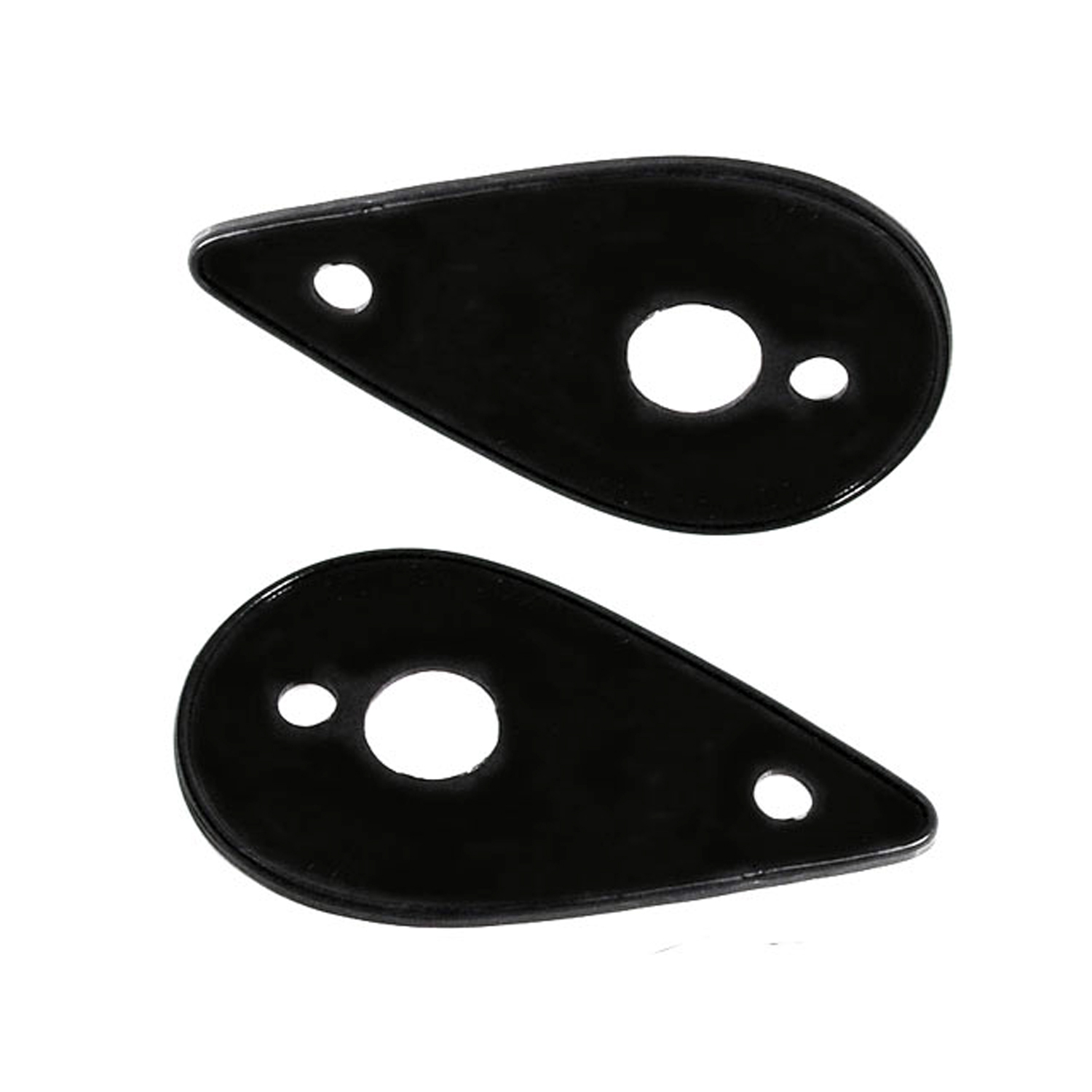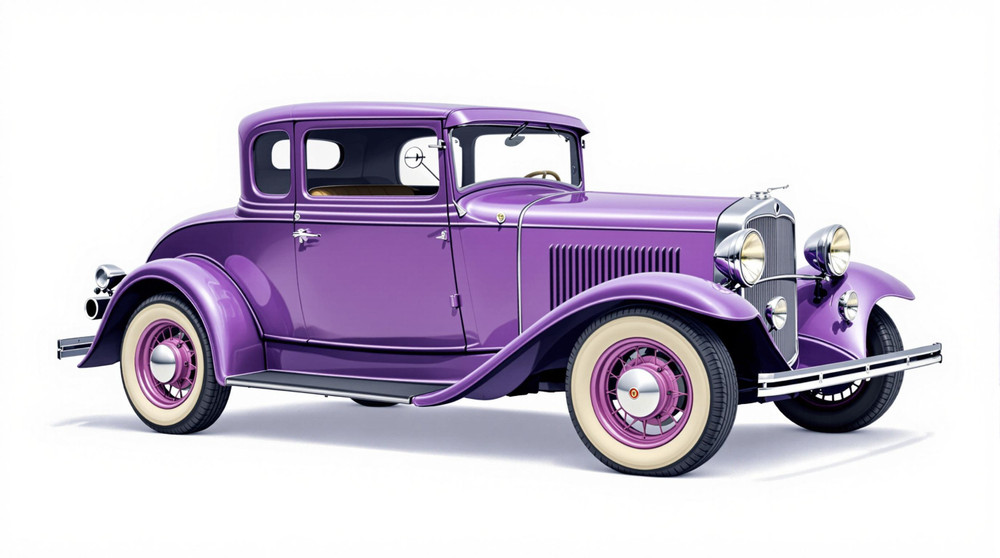Image of 1930 Oakland Model 101, Note: These illustrations use artistic license and may differ from actual historical models.
Performance Metrics
Fundamental Metrics
Emotional Appeal
MMP Rating
| Engine Specifications | |
|---|---|
| Engine: | L-head inline 6-cylinder engine |
| Displacement: | 3.3L |
| Horsepower: | Estimated 60-70 HP |
| Torque: | Not available |
| Compression Ratio: | Not available |
| Ignition System: | Battery and coil |
| Cooling System: | Water-cooled |
| Performance Specifications | |
| 0-60 Time: | Not available |
| 1/4 Mile Time: | Not available |
| Top Speed: | 60-70 mph |
| Transmission and Drive | |
| Drive Type: | Rear-wheel drive |
| Transmission Type: | 3-speed manual |
| Fuel and Efficiency | |
| Fuel System Type: | Carburetor |
| MPG: | Not available |
| Dimensions and Brakes | |
| Brakes: | Mechanical drum brakes |
| Wheelbase: | 117 inches |
| Weight: | 2,800 lbs |
Note: Specifications for classic cars are given to the best of our ability, considering the limited and variant data available.
Unveiling the Charm of the 1930 Oakland Model 101
The 1930 Oakland Model 101 stands as a testament to the ingenuity and craftsmanship of early American automaking. Born from the assembly lines of General Motors' Oakland Motor Car division, this vehicle emerged during an era of economic turmoil and technological transition. The Oakland brand, named after the city of Oakland, California, was positioned as a more upscale companion to Chevrolet and a direct competitor to Oldsmobile. A unique fact that car enthusiasts may find fascinating is that the Oakland Model 101 played a pivotal role in paving the way for Pontiac, a brand that would later become synonymous with American automotive innovation.
Design and Innovation
The exterior styling of the Oakland Model 101 was both elegant and bold, featuring sweeping fenders and a grille that exuded confidence. The car's silhouette was a harmonious blend of form and function, with a design language that spoke to both luxury and durability. Inside, passengers were greeted with an interior that showcased high-quality fabrics and meticulous attention to detail. Wood accents often adorned the dashboard, adding to the overall sense of refinement. Technologically, the Model 101 was ahead of its time, boasting features such as advanced suspension systems for improved ride quality. Color options ranged from deep blues to rich maroons, with black being a popular choice for its timeless appeal. Body styles varied, including sedans, coupes, and roadsters; however, the four-door sedan stood out as the iconic choice for many families and professionals.
Historical Significance
The Oakland Model 101's impact on automotive design cannot be overstated. It introduced design elements and mechanical innovations that would influence future generations of vehicles. Its legacy is particularly evident in how it helped establish Pontiac as a major player in the automotive industry. The Model 101's blend of style, comfort, and performance set new standards for what motorists expected from their vehicles.
Performance and Handling
Performance-wise, the Oakland Model 101 was no slouch for its era. With a top speed that could reach up to 60 miles per hour—a respectable figure in 1930—the car offered spirited acceleration for its class. Handling was characterized by a sturdy feel over various driving conditions; whether navigating city streets or cruising on country roads, drivers could expect a solid and reassuring experience behind the wheel. The engine's hum was music to the ears of automobile aficionados, while the ride quality balanced firmness with comfort.
Ownership Experience
Owners of the Oakland Model 101 typically used their vehicles for daily transportation or as stylish weekend cruisers. As an ancestor to modern cars, maintenance required some mechanical know-how but was generally manageable for those familiar with basic auto repair. Reliability was commendable given the era's standards, making it a cherished possession among those lucky enough to own one.
Fun Facts
The Oakland Model 101 has its share of intriguing trivia. For instance, while not known for breaking speed records or dominating sales charts, it held its own in endurance tests of the time. Celebrity ownerships were rare but did occur; these vehicles occasionally graced the driveways of early Hollywood stars. Criticisms typically revolved around its price point—considered high for some during economic downturns—but fans argued that its quality justified the cost.
Collector's Information
Today, finding an Oakland Model 101 can be akin to uncovering hidden treasure. Production numbers were limited even in their heyday; thus, surviving examples are scarce. As for value range, pristine models can fetch significant sums from collectors who appreciate their rarity and historical importance—prices can vary widely but often run into tens of thousands of dollars or more. Price trends have generally shown appreciation over time due to their scarcity and historical significance. As an estimate based on auction results and private sales, well-maintained or restored examples could command anywhere from $30,000 to $50,000 or more depending on provenance and condition.
Conclusion
The 1930 Oakland Model 101 is more than just an antique car; it's a rolling piece of history that encapsulates the spirit of innovation during an age of transformation in America's automotive landscape. Its legacy lives on through each preserved model—a legacy of elegance, performance, and technological advancement that set the stage for future classics.
1930 Oakland Model 101 Catalog of Parts
 1930 Oakland Model 101 Headlight Pads. 3-3/8" wide X 5-7/8" long. Pair-MP 990-YHeadlight Pads. 3-3/8" wide X 5-7/8" long. Pair
1930 Oakland Model 101 Headlight Pads. 3-3/8" wide X 5-7/8" long. Pair-MP 990-YHeadlight Pads. 3-3/8" wide X 5-7/8" long. Pair 1930 Oakland Model 101 Running Board Covers, with Center Logo. Fits 29-31 Oakland Pair-RB 8175-ARunning Board Covers, with Center Logo. Fits 29-31 Oakland Pair
1930 Oakland Model 101 Running Board Covers, with Center Logo. Fits 29-31 Oakland Pair-RB 8175-ARunning Board Covers, with Center Logo. Fits 29-31 Oakland PairWhy Choose Metro?
For over 100 years, Metro Moulded Parts has been the pinnacle of quality in classic car restoration parts. Our commitment to precision and authenticity in every component ensures a perfect fit and an OEM-level appearance.
- Expert Craftsmanship & Quality: Each part is a testament to our dedication to reliability and perfection, crafted from original designs and thoroughly tested.
- Advanced Technology: We use cutting-edge techniques to create flawless, long-lasting parts that surpass others in performance.
- SuperSoft Sponge – The Ultimate Door Seal: Not only are our door seals 30% softer than competitors', but they're also guaranteed to never leak. They effectively reduce wind and road noise, enhancing your classic car's comfort and driving experience.
- Proudly American: Our parts are a product of American craftsmanship, made in the USA with a spirit of excellence and heritage.
- Unrivaled Warranty: We back our products with a 30-year industry-leading warranty, a testament to our confidence in their quality.
Join us in preserving the legacy of classic cars with parts that are crafted for perfection, not just made.

